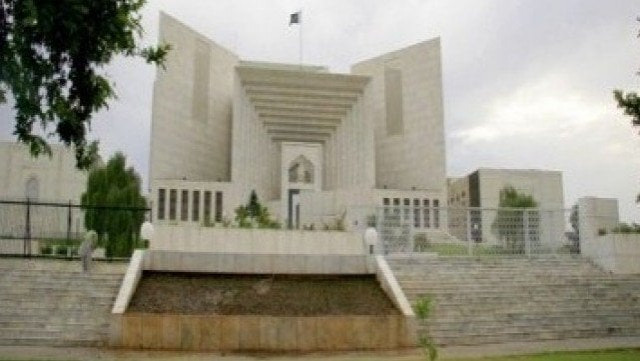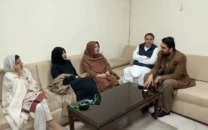SC allows ACs to stay on during court hearings

The president of the Sindh High Court Bar Association Rasheed A Rizvi highlighted the problems of heat and suffocation in the court room to a three-member bench including Chief Justice of Pakistan Iftikhar Mohammad Chaudary, Justice Rahmat Hussain Jafferi and Justice Ghulam Rabbani. He complained that there was no cross-ventilation in the room.
He pointed out the case of a lawyer whose condition worsened in the courtroom due to the excessive heat on Tuesday. He added that the courts are not only restricted to lawyers and officers, members of the public also visit them and the air conditioners should be used at least for them. Other lawyers also supported his recommendations.
The court accepted the request and gave the permission for the use of air conditioners during the court proceedings. During the hearing in the Supreme Court on Wednesday, a former employee of PIA Nusrat Ameen’s health suddenly deteriorated and he was taken to hospital. According to the court records, Ameen’s case was not listed on the cause-list for the day. SC orders investigation into 2 human rights complaints The Supreme Court directed for further inquiry into two human rights cases and took the police to task on Wednesday.
During the first case, the court ordered District Police Officer Jacobabad Saqib Ismail Memon on Wednesday to find a minor girl allegedly abducted by dacoits in 2007. The three-member bench, comprising Chief Justice of Pakistan Iftikhar Muhammad Chaudhry, Justice Rahmat Hussain Jafferi and Justice Ghulam Rabbani, was hearing a human rights complaint lodged by the abducted girl’s father. Applicant Abdul Razzak submitted that bandits abducted his daughter, Fazeela Sarki, in March 2007 when she was only six years old.
Since then, the police have not been able to find her. On Wednesday, DPO Memon submitted that the hideout of alleged dacoit Tegs Khan Tegani in the Katcha area of interior Sindh was raided on a lead by the applicant, but no one could be found. Razzak expressed dissatisfaction over the police’s action and appealed to the court to order the police to find his daughter.
The apex court granted more time to the DPO to find the girl and bring her before the Sessions Judge. The three-member bench, separately, appointed the District and Sessions Judge, Hyderabad, as an inquiry officer to investigate allegations of illegal detention against the Tando Allahyar police.
Fida Hussain filed a human rights complaint, alleging that the police booked and arrested his brothers, Shah Nawaz Hussain, Niaz Hussain, Wazir Hussain and Rashid Hussain, in a false murder case on July 29, 2009. They also detained Rashid’s wife, children and other relatives for some time, they submitted. He stated that the case was false, as the police had no role in the commission of an alleged offence.
Fida and his brother Wazir approached the Supreme Court to seek action against the police’s alleged illegal detention and demanded the release of their relatives. On Wednesday, TPO Tando Allahyar Mir Khuhro and SHO Inspector Ghulam Mustafa Zardari appeared and denied the allegations, contending that the arrested persons were criminals. The officers also submitted that Rashid Hussain and his family were released by the police.
The Supreme Court bench reproved the police officers’ submissions and appointed the District Judge Hyderabad to inquire about allegations of the police unlawfully detaining people. The bench also instructed the officers to submit a compliance report on the next date of the hearing.
Published in the Express Tribune, May 20th, 2010.



















COMMENTS
Comments are moderated and generally will be posted if they are on-topic and not abusive.
For more information, please see our Comments FAQ